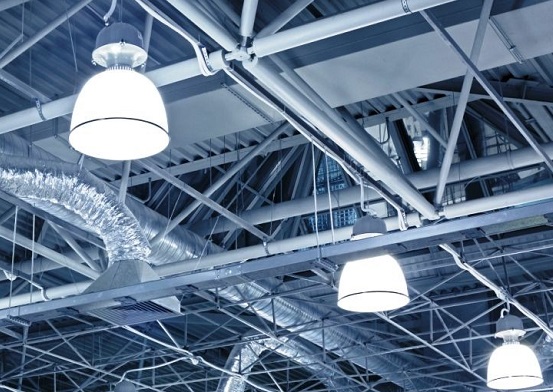M&E
Contents |
[edit] What does M&E mean in the construction industry?
In the construction industry, the term 'M&E' means 'mechanical and electrical'. It may be used to refer to mechanical and electrical systems, or mechanical and electrical engineers, mechanical and electrical drawings and so on.
[edit] What are mechanical and electrical systems?
Mechanical systems can include elements of infrastructure, plant and machinery, tool and components, heating and ventilation and so on.
For more information see: Mechanical engineer.
Electrical systems might include, power supply and distribution, telecommunications, computing instrumentation, control systems and so on.
For more information see: Electrical engineer.
Clearly there is a great deal of overlap, with many systems including both mechanical and electrical components, hence the term M&E.
[edit] What qualifications do M&E engineers have?
There are both mechanical and electrical engineering professionals who specialise in M&E. M&E engineers will often hold a degree in mechanical, electrical or M&E engineering. There are also combined mechanical and electrical engineering courses are available, with joint accreditation between the Engineering Council, Institution of Engineering and Technology (IET) and Institution of Mechanical Engineers. Chartered Engineer status can be awarded through the Chartered Institution of Building Services Engineers.
There are a large number of specialist M&E subcontractors and suppliers, and many of the bigger main contractors will have their own M&E divisions. A great deal of integration and co-ordination is required and designs are often a collaboration between consultants, contractors and specialists. This can cause problems where there are a number of separate disciplines, packages and suppliers, with no one party taking overall responsibility for co-ordination.
[edit] What is the difference between M&E and building services?
The terms 'M&E' and 'M&E engineer' are often taken as interchangeable with the terms 'building services'/ 'building services engineer'.
Building services are the systems installed in buildings to make them comfortable, functional, efficient and safe and might include:
- Building control systems.
- Energy distribution.
- Energy supply (gas, electricity and renewable sources such as solar, wind, geothermal and biomass).
- Escalators and lifts.
- Facade engineering (such as building shading requirements).
- Fire safety, detection and protection.
- Heating, ventilation and air conditioning (HVAC).
- Information and communications technology (ICT) networks.
- Lighting (natural and artificial).
- Lightning protection.
- Refrigeration.
- Security and alarm systems.
- Water, drainage and plumbing (including sustainable urban drainage systems (SUDS)).
- Carbon emissions calculations and reduction.
However, mechanical and electrical engineering can be a wider field than this, including areas beyond building design and construction, such as; large-scale power generation and transmission, transportation systems, infrastructure controls, industrial installations and so on.
For more information see: Building services engineer.
[edit] Related articles on Designing Buildings
- Air conditioning.
- Air handling unit.
- BSRIA.
- Building engineering physics.
- Building services.
- Building services engineer.
- CIBSE.
- Electrical engineer.
- Engineer.
- Institution of Mechanical Engineers.
- Mechanical engineer.
[edit] External references
Featured articles and news
ECA progress on Welsh Recharging Electrical Skills Charter
Working hard to make progress on the ‘asks’ of the Recharging Electrical Skills Charter at the Senedd in Wales.
A brief history from 1890s to 2020s.
CIOB and CORBON combine forces
To elevate professional standards in Nigeria’s construction industry.
Amendment to the GB Energy Bill welcomed by ECA
Move prevents nationally-owned energy company from investing in solar panels produced by modern slavery.
Gregor Harvie argues that AI is state-sanctioned theft of IP.
Heat pumps, vehicle chargers and heating appliances must be sold with smart functionality.
Experimental AI housing target help for councils
Experimental AI could help councils meet housing targets by digitising records.
New-style degrees set for reformed ARB accreditation
Following the ARB Tomorrow's Architects competency outcomes for Architects.
BSRIA Occupant Wellbeing survey BOW
Occupant satisfaction and wellbeing tool inc. physical environment, indoor facilities, functionality and accessibility.
Preserving, waterproofing and decorating buildings.
Many resources for visitors aswell as new features for members.
Using technology to empower communities
The Community data platform; capturing the DNA of a place and fostering participation, for better design.
Heat pump and wind turbine sound calculations for PDRs
MCS publish updated sound calculation standards for permitted development installations.
Homes England creates largest housing-led site in the North
Successful, 34 hectare land acquisition with the residential allocation now completed.
Scottish apprenticeship training proposals
General support although better accountability and transparency is sought.
The history of building regulations
A story of belated action in response to crisis.
Moisture, fire safety and emerging trends in living walls
How wet is your wall?
Current policy explained and newly published consultation by the UK and Welsh Governments.
British architecture 1919–39. Book review.
Conservation of listed prefabs in Moseley.
Energy industry calls for urgent reform.






























Comments
[edit] To make a comment about this article, click 'Add a comment' above. Separate your comments from any existing comments by inserting a horizontal line.
Really helpful explanation thanks.